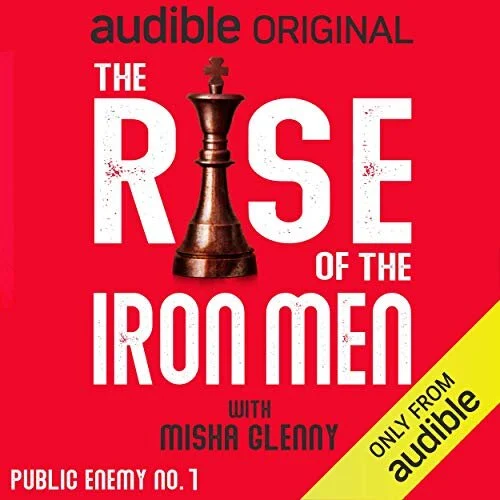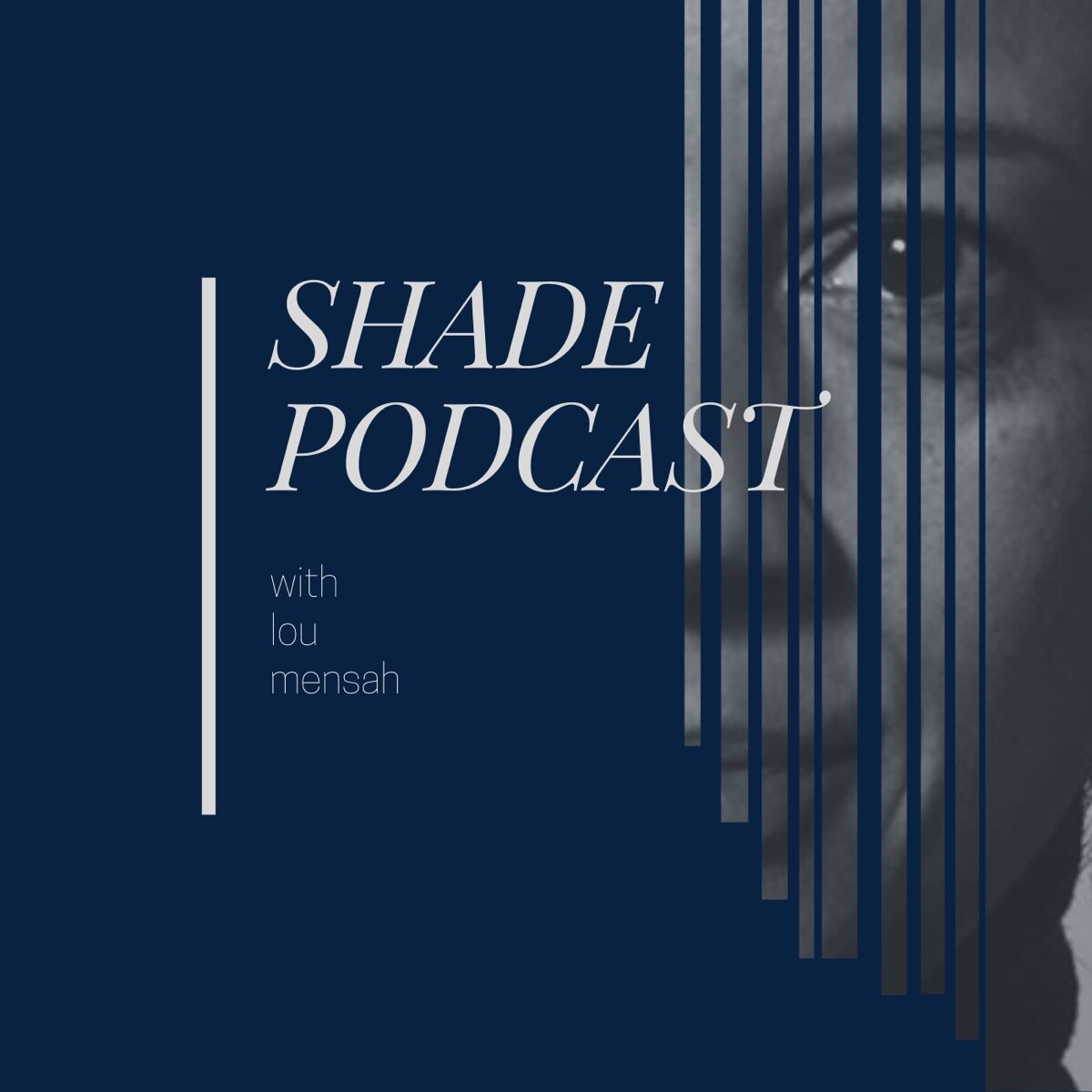THE BEST Podcasts OF 2020
Code Switch is a weekly podcast that explores how race intersects with every aspect of our lives. Hosts Shereen Marisol Meraji and Gene Demby bring honesty, empathy and nuance to challenging conversations.
In One episode Meraji and Demby ask the rhetorical question: “Is Trump Really That Racist?” Obviously yes! But in the context of the ignominious racial records of American presidents - racism was a founding tenet and Trump a sympton. How many presidents owned enslaved people? Twelve of the first 18 presidents of the United States owned enslaved people. “And, of course, how many Indigenous people were slaughtered to make way for this new country? I mean, whenever people say this, it's like, are y'all new here? Are y'all new here?” Demby asks. Even presidents as Barack Obama who earned the nickname ‘deporter in chief’ when he was president. In his eight years as president, he deported more than 2.5 million people. That's more than any other president ever.
Another episode digs into the trend of Karen and how it tends to make racism seem like an individual choice. The satisfaction that comes from cancelling a Karen is one thing - another thing is that it's impossible to record some of the more impactful forms of racism, as Kiley Reid (author of Such a Fun Age) says; like a doctor not believing a Black woman when she says she's in pain or rejecting a housing application because of someone's last name. You can't record that in to a cartoon capturable racism like the Karen memes. In other words, the people who seem woke, who say the right things but who are still deeply invested in the structures of racism. Reid calls it the next face of Karen.
THE RISE OF THE IRON MEN
Populism, power and politics - Misha Glenny’s portrais six politicians unexpected rise. Boris Johnson, Duterte the current president of the Philippines , Bolsonaro in Brazil, Modi in India, Erdoğan in Turkey and Orban in hungary – all have learned from one another, honing their techniques, striking up temporary alliances and trying to wrongfoot those who want to play by the rules. They all pick up on ethnic and national groups to mobilise their base, but what is most importing in identifying “Iron Men“ is how once in power they have sought to dismantle democratic institutions. The very mechanisms which enable their rise in the first place. Another thing the “Iron Men” have in common in misogyny, the hatred of women.
These populist world leaders are dominating headlines and creating a new kind of politics that challenges democratic values and the liberal order.
They influence the media, exert economic power, appoint judges, cultivate populism and seek to undermine the very institutions which brought them into power.
In this gripping narrative, Misha Glenny, journalist and best-selling author of McMafia, tells the stories of six strongmen’s unexpected rise. A Somethin’ Else production for Audible Originals.
Resistance
A new show about refusing to accept things as they are. Stories from the front lines of the movement for Black lives, told by the generation fighting for change. Hosted by Saidu Tejan-Thomas Jr.
We all know about the campaigns to take down the Lees, the Jacksons, the Columbuses. But what about those lesser-known creeps? What about all the names in big city neighborhoods, rep on hoodies, put in songs, hold on tightly to? The names we don’t suspect? Like the names of the streets in New York - after slave owners. The episode ‘Lesser Known Creeps’ shed lights on the - yes - lesser known creeps. While the episode ´Shake The Room´ documents a chilling story about police prejudice during the Black Lives Matter demonstrations.
/REPLY-ALL/
"A podcast about the internet' that is actually an unfailingly original exploration of modern life and how to survive it." - The Guardian. Hosted by PJ Vogt, Alex Goldman and Emmanuel Dzotsi from Gimlet
One of the best episodes of 2020 is “ #166 Country of Liars. PJ looks into a theory circling the internet about who might be behind QAnon. The investigation takes him back to the beginning of the QAnon scam, and to the message board trolls who started it.
“IT WASN’T SEXISM, THEN”
Polly Platt’s legacy was appraised when she died in 2011. This episode of You Must Remember This unfolds Polly’s story. Beginning with her Revolutionary Road-esque childhood in Europe and America as the neglected daughter of two alcoholics; to her years studying scenic design in environments in which women weren’t welcome; the secret pregnancy that halted her formal education, and the early marriage that took her West and cemented her desire to tell stories through design. Throughout, we’ll talk about how Platt’s experiences, as the product of an American military family of the 1950s—and the daughter of a mother who had been forced to abandon a career for motherhood––shaped her view of gender roles and relations, and her idea of what it meant to be the wife of a important man.
You Must Remember This is the podcast exploring the secret and/or forgotten histories of Hollywood's first century.
WIND OF CHANGE
It’s 1990. The Berlin Wall just fell. The Soviet Union is on the verge of collapse. And the soundtrack to the revolution is one of the best selling songs of all time, the metal ballad “Wind of Change,” by the Scorpions.
Decades later, journalist Patrick Radden Keefe heard a rumor: the song wasn’t written by the Scorpions. It was written by the CIA. This is his journey to find the truth.
Wind of Change is an Original Series from Pineapple Street Studios, Crooked Media and Spotify.
Rabbit Hole
What is the internet doing to us? The Times tech columnist Kevin Roose discovers what happens when our lives move online.
In the first episode, “Wonderland,” we hear from a young man named Caleb, who finds escape and direction on the internet. We follow his journey into the YouTube universe.
“Rabbit Hole,” a New York Times audio series with the tech columnist Kevin Roose, explores what happens when our lives move online.
SHADE
Conversations on anti-racism work through the lens of creativity & activism. Hosted by writer & photographer Lou Mensah
Every episode gave me something new to think about. Inspiring. Miranda Sawyer, The Guardian
Instructive and inspiring podcast. Grazia
Featured Black Lives Matter Podcast on Apple
DIG
Louisville Public Media
In the first season of Dig, a new podcast from the Kentucky Center for Investigative Reporting, we bring you the results of a yearlong look at how rape cases are investigated in Louisville. What we’ve learned: here, the police defer to prosecutors on rape cases -- and prosecutors reject the vast majority of cases presented to them. Due to this unusual relationship, most people accused of rape here will never face consequences. Most won’t be arrested or convicted. And the case will be closed anyway. Donate to support this and future seasons of Dig.
FLOODLINES
Some call it Hurricane Katrina. Some call it the Federal Flood. Others call it the day the levees broke. On August 29, 2005, the city of New Orleans was submerged. That story of hubris, incompetence, and nature's wrath is now etched into the national consciousness. But the people who lived through the flood and its aftermath have a different story to tell. A story of rumors, betrayal, and one of the most misunderstood events in American history. Hosted by Vann R. Newkirk II.
74 SECONDS
74 Seconds tells the story of a July 2016 traffic stop that ended with the world watching a man die, live on their phones. This is the story of that man, Philando Castile, and the officer who is about to go on trial for his death, Jeronimo Yanez. Through comprehensive reporting, MPR News examines this intersection of race, policing, justice and safety in America. A lot can happen in 74 seconds.
Slow Burn 4:
DAVID DUKE
In the late 1980s and early 1990s, a white supremacist became an American political phenomenon. David Duke’s rise to power and prominence—his election to the Louisiana legislature, and then his campaigns for the U.S. Senate and the governorship—was an existential crisis for the state and the nation. The fourth season of Slate’s Slow Burn will explore how a Nazi sympathizer and former Klansman fashioned himself into a mainstream figure, and why some voters came to embrace his message. It will also examine how activists, journalists, and ordinary citizens confronted Duke’s candidacy, and what it took to stop him.
ABOUT RACE
From the author behind the bestselling Why I’m No Longer Talking to White People About Race (http://renieddolodge.co.uk/books/) comes a podcast that takes the conversation a step further.
Featuring key voices from the last few decades of anti-racist activism, About Race with Reni Eddo-Lodge looks at the recent history that lead to the politics of today.
Join the conversation using the hashtag #AboutRacewithReni
SOMEBODY
When Shapearl Wells's son Courtney is found outside a Chicago police station with a fatal bullet wound, Shapearl immediately distrusts the official narrative. So she launches her own investigation into her son’s murder and teams up with journalists from the Invisible Institute to confront the cops and find the truth about Courtney's death. Somebody explores the racial disparities and turbulent relationship between law enforcement and citizens in one of America’s largest cities. A co-production of Topic Studios, The Intercept, the Invisible Institute, and iHeartRadio, in association with Tenderfoot TV.













